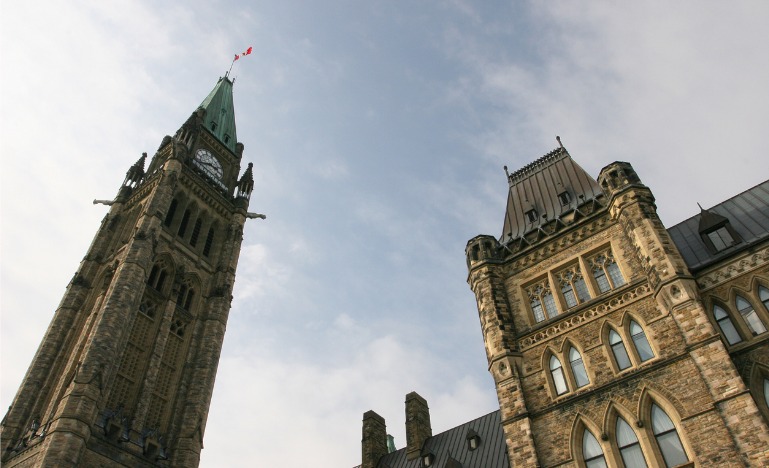The House of Commons is set to resume sitting on September 19th, and the Senate a week later, with several bills still on the order paper from the spring. This Parliament has seen many more bills introduced in the Senate for consideration before they go to the House of Commons, especially compared to the previous two parliaments in the Trudeau era.
The following are all government bills on the order paper at various stages, in both chambers:
- Bill S-4, which makes changes to the Criminal Code around making permanent some aspects of the justice system that were tried during the height of the pandemic, such as the use of videoconferencing for both court appearances and jury selection. It also has provisions around fingerprinting and replacing existing provisions on issuing telewarrants. This bill was introduced in the Senate and has passed, and now requires approval from the House of Commons. A version of this bill had been introduced in the previous Parliament.
- Bill S-5 makes several technical changes to the Canadian Environmental Protection Act and the Food and Drugs Act, including adding the right to a healthy environment. It amends some provisions around toxic substances, and the assessment and management of environmental risks associated with foods, drugs, cosmetics, and devices. This bill was introduced in the Senate and has now passed that stage, requiring approval from the Commons.
- Bill S-6 is a technical omnibus bill amending several different statutes as part of the Regulatory Modernization Initiative. It has passed the Senate and has passed first reading in the House of Commons.
- Bill S-7 has been relatively controversial because it proposed creating a permissive new standard by which border officers could examine personal digital devices. Senators objected to that new standard, and amended the bill to require that preclearance officers require “reasonable grounds to suspect” before conducting a search. The bill, as amended, has now passed the Senate and is off to the House of Commons for approval.
- Bill S-8 makes changes to the Immigration and Refugee Protection Act regarding inadmissibility provisions relating to sanctions, including removal orders. It, too, has passed the Senate and awaits introduction in the Commons.
- Bill S-9 amends the Chemical Weapons Convention Implementation Act to avoid potential discrepancies with the Convention. This bill previously passed the Senate but died on the order paper at the last election call. It has passed the Senate again in this Parliament and awaits introduction in the Commons.
- Bill C-5 seeks to repeal mandatory minimum sentences for certain drug offences in an effort to reduce the over-incarceration of Black and Indigenous people. It has passed the House of Commons and is ready for committee study in the Senate.
- Bill C-9 amends the Judges Act to replace the process by which the Canadian Judicial Council reviews the conduct of federally appointed judges and establishes a new process regarding allegations of misconduct not serious enough to warrant removal from the bench. Though it was had previously been introduced in the Senate, that bill was abandoned and re-introduced in the House of Commons, where it is currently in the midst of second reading debate.
- Bill C-11 is the highly controversial bill to amend the Broadcasting Act to bring streaming services into the Canadian content ecosystem, and to contribute financially to it. It also seeks to make Canadian content more discoverable on streaming platforms. The bill has passed the House of Commons and is being studied at committee in the Senate.
- Bill C-13 is the government’s overhaul of the Official Languages Act, given the attention paid to the alleged decline of French, particularly in Quebec. It is currently under consideration at committee in the House of Commons.
- Bill C-18 is the government’s plan to impose a bargaining system onto negotiations between web giants and news media outlets to pay for content, similar to the Australian model. It has completed second reading in the House of Commons and awaits committee study.
- Bill C-20 would create a new Public Complaints and Review Commission for the RCMP and the Canadian Border Services Agency, though there are concerns that this is not proper independent oversight. The bill has been introduced but has not yet been debated.
- Bill C-21 is the government’s centrepiece gun control bill that would end the importation of handguns and increase penalties for several firearms-related offences. It has passed second reading and now awaits committee study.
- Bill C-22 is the government’s plan to create new disability benefits under the Income Tax Act in the hopes of alleviating poverty for persons with disabilities. It has been introduced but has not yet been debated.
- Bill C-23 would see greater Indigenous participation in the designation of historical places or sites of national historical significance, and the conservation of such sites. The bill has not yet been debated.
- Bill C-26 makes technical changes to the Telecommunications Act around securing systems against cyber-attacks and enacts parts of the Critical Cyber Systems Protection Act. It has not yet been debated.
- Bill C-27 is the government’s promised overhaul of federal privacy legislation to make it more compliant with the digital era, including establishing a new Personal Information and Data Protection Tribunal. It has not yet been debated.
- Bill C-29 proposes the creation of a national council for reconciliation in response to Call to Action 53 of the Truth and Reconciliation Commission. It has not yet been debated.
In addition to these bills, Justice Minister David Lametti has committed to consultations this fall on new legislation that would allow for the criminalization of purely cosmetic surgeries on intersex children’s genitalia until they are mature enough to provide consent; to limit the prosecutions of people who fail to disclose their HIV status before otherwise consensual sexual activity; and to modernize indecency-based offences often used to target the LGBTQ+ communities. The government has also promised to expand on the regime to destroy or permanently remove historically unjust LGBTQ+ judicial records under the Expungement of Historically Unjust Convictions Act.



